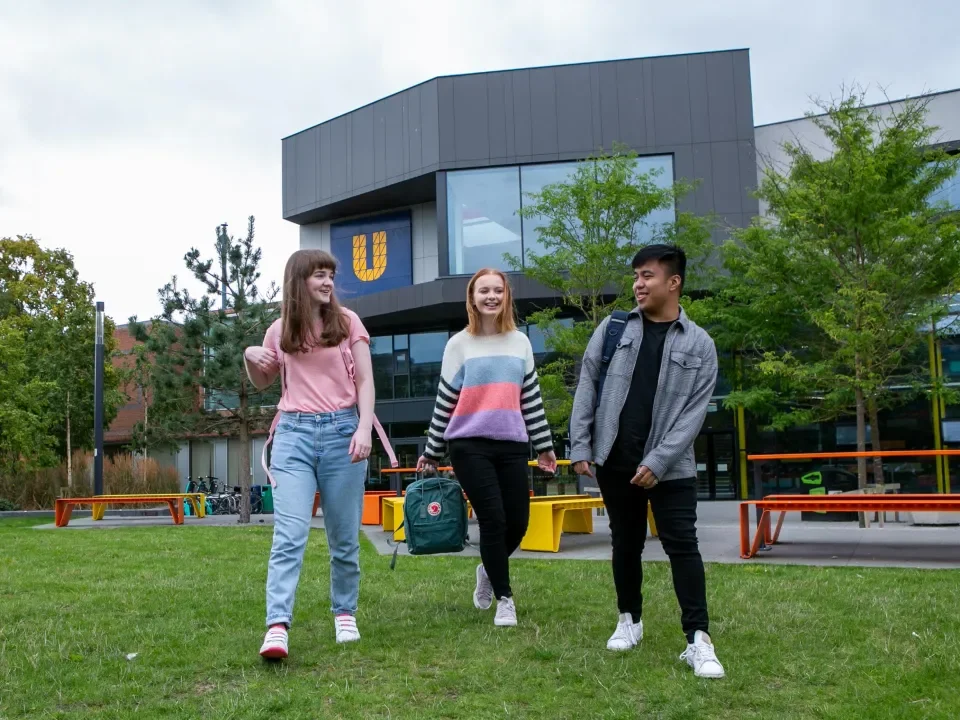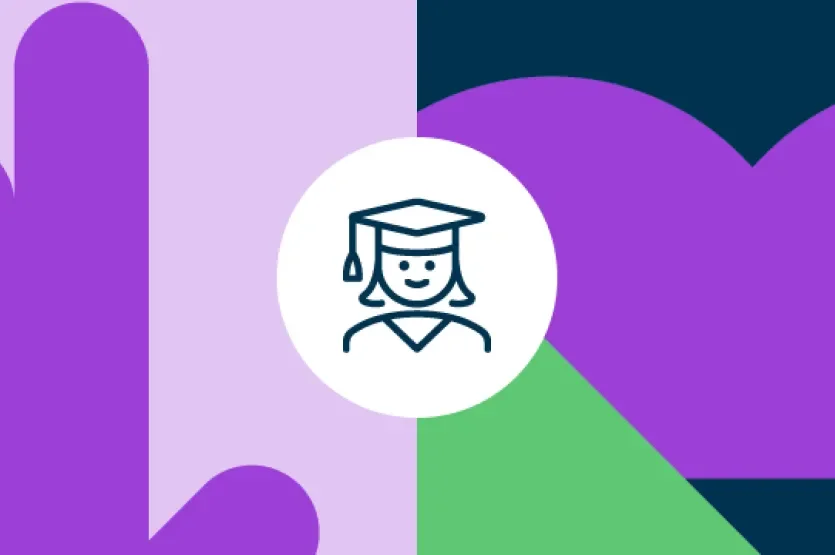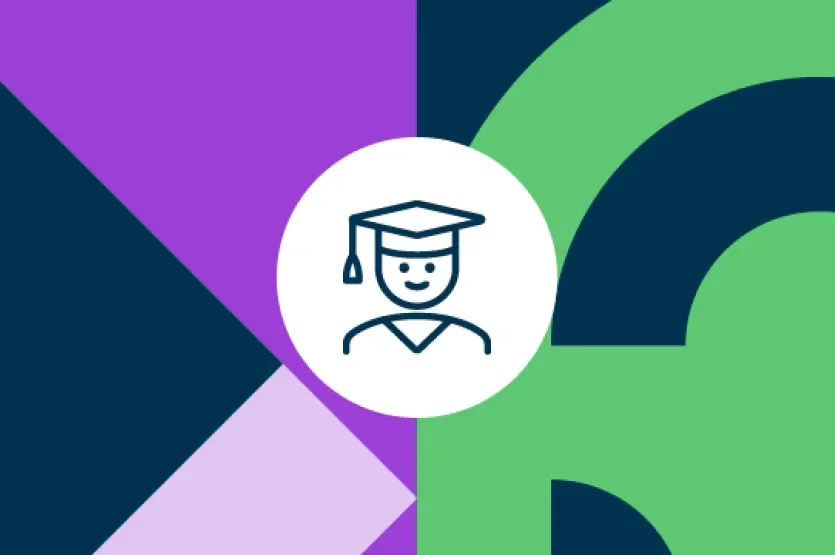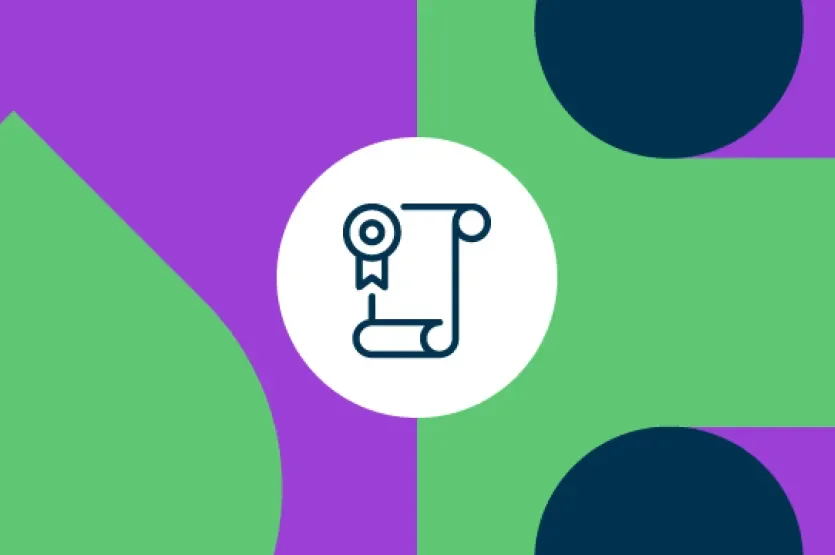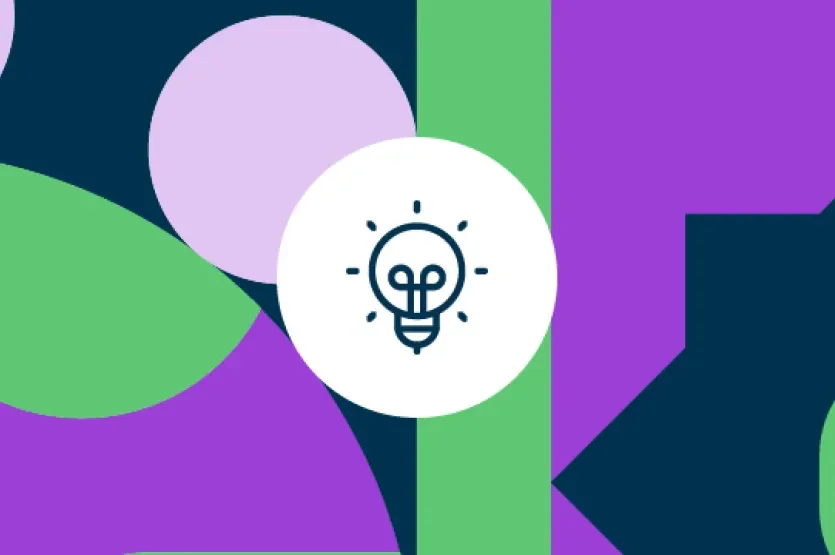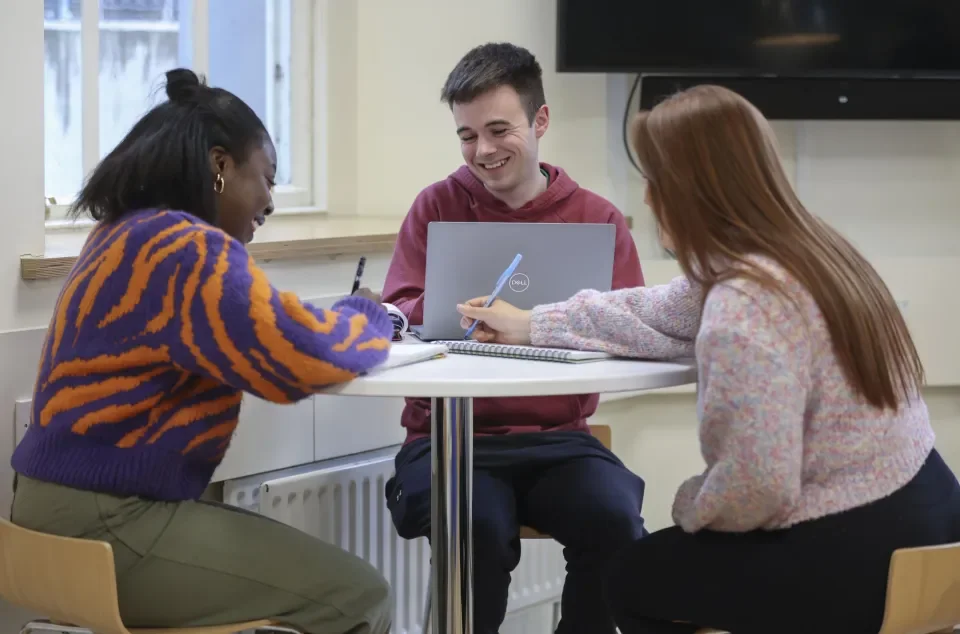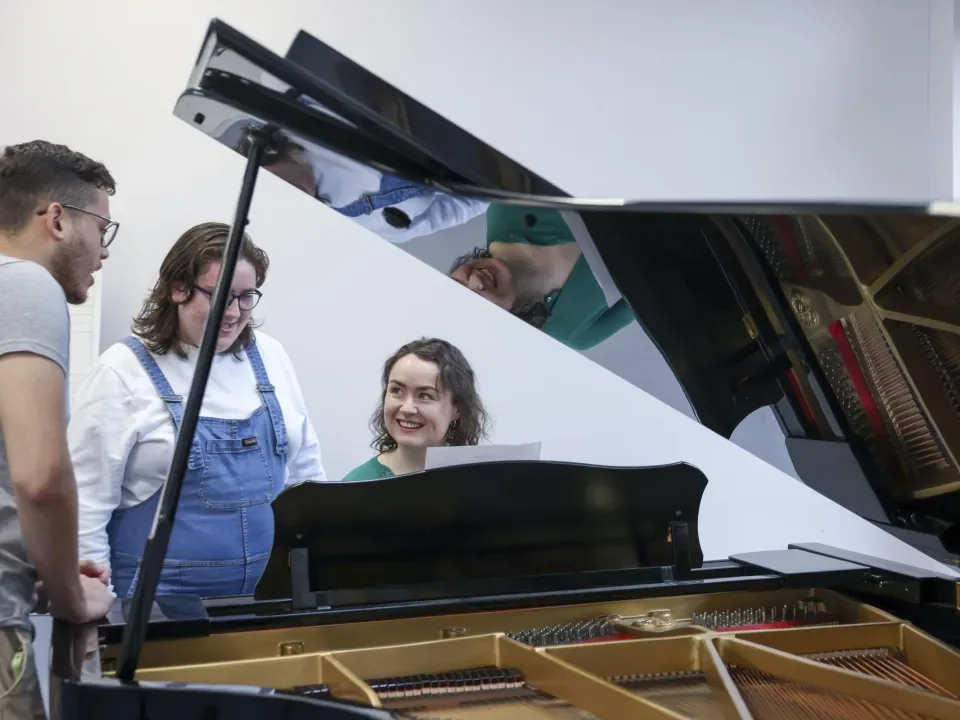Overview
This exciting programme blends theory and practice, preparing you to be an effective and inspiring teacher in two distinct subjects. Graduates are qualified to teach Religious Education and Music to Honours Leaving Certificate level.
You will explore the ideas behind Theology, Religious Studies and Ethics. You’ll also develop your musicianship to an advanced level and learn about composition. Alongside the core subject areas, the course has a focus on teamwork, leadership, communication and creativity - skills that will serve you well in a teaching career and can also transfer to a number of other professions.
This programme also prepares you for the modern-day teaching environment by offering valuable and extensive teaching experience, both within the university and in school-based placements.
Why DCU
DCU People
Careers & Further Options
Careers
This course is fully recognised by the Teaching Council of Ireland, and upon graduation, you can register as a Newly Qualified Teacher (NQT) and apply immediately for employment in second level schools.
- Government Departments
- International Development Agencies
- Media
- Post Primary Schools
- Private Sector
- The Arts
Entry Requirements
Applicants for the Bachelor of Religious Education and Music (DC012) programme are advised that there will be no music theory/aural test or audition/interview for this programme.
If you have any questions about Music on the Bachelor of Religious Education and Music programme (DC012), please contact Dr Seán Doherty: sean.doherty@dcu.ie
In addition to the general entry requirements for admission to the university the following entry requirements apply: minimum of H4 in Music or equivalent (this restriction may be waived by the Head of School or nominee for Mature applicants who have a high level of performance and music theory training through classes over a number of years).
Applicants for the Bachelor of Religious Education and Music (DC012) programme are advised that there will be no music theory/aural test or audition/interview for this programme. All applicants who have applied through the CAO for this programme will be deemed eligible to
compete for a place on the programme, subject to meeting the general entry requirements noted above and the programme-specific entry requirements, i.e. minimum of H4 in Music.
In addition to the general entry requirements for admission to the university the following entry requirements apply: A minimum of grade D in GCE A Level Music or a minimum grade C in GCE AS Level Music.
Applicants for the Bachelor of Religious Education and Music (DC012) programme are advised that there will be no music theory/aural test or audition/interview for this programme. All applicants who have applied through the CAO for this programme will be deemed eligible to
compete for a place on the programme, subject to meeting the general entry requirements noted above and the programme-specific entry requirements.
Please visit our Admissions webpage for details on course requirements or how to apply to DCU.
Please visit our QQI FET webpage for details on DCU courses, open days, campus tours or school visits.
To apply to DCU, please visit www.cao.ie.
Applicants for the Bachelor of Religious Education and Music (DC012) programme are advised that there will be no music theory/aural test or audition/interview for this programme. All applicants who have applied through the CAO for this programme will be deemed eligible to
compete for a place on the programme, subject to meeting the general entry requirements and the programme-specific entry requirements i.e. minimum of five distinctions in any QQI award which must include a distinction in 5N1849, Music Theory and Practice.
Mature entry is a competitive process. Applicants must demonstrate:
- a genuine interest in the programme(s) they are applying for
- academic experience and competency in their chosen field of study
- an ability to engage and succeed on the programme
All applicants must complete a statement of interest to be considered for the mature application route.
For further guidance on the mature application process please see the CAO Website
No Entry Path
International candidates are expected to have educational qualifications of a standard equivalent to those outlined above. In addition, where such candidates are non-native speakers of the English language they must satisfy the university of their competency in the English language. Click here for further information on international applications.
Course Structure
The study of music combines an opportunity to develop your own musicianship to a high level with a chance to experience and engage with a wide range of musical styles through performance, through historical, analytical and contextual inquiry, and through composition.
Subject areas include compositional techniques, music history and contextual studies, solfège/musicianship and keyboard skills, choral and instrumental performance, Irish traditional music, choral conducting, and music technology.
All students participate in performance ensembles (choir, trad group, orchestra), which play an active role in the university’s cultural life, and which prepare you for the diverse challenges involved in music teaching and musical life more broadly.
- Specialised centre of excellence with a long and rich background in Teacher Education
- 25% School Placement preparing you to teach in the 21st-century classroom
- Qualify to teach RE & Music to Honours Leaving Certificate level
- Track record of graduate employment in key educational positions in Ireland, Europe and Internationally
Fees and Funding
Fees
How To Apply
Applicants presenting EU School Leaving/QQI Level 5 examinations.
To apply for this programme:
Candidates should apply directly here. Here's a quick step by step guide if you need help with your application.
Please provide
- Academic Transcripts for each and every year of study with English translation, if applicable.
- If applicable, provide evidence of competence in the English language as per DCU entry requirements.
Applications are accepted on an ongoing basis up to 1st July. All Non-EU candidates are advised to apply early, as places are limited.
All mature applicants apply through the CAO by 1st February. For further information and for special application procedures for mature students, please click here
Applicants for the Bachelor of Religious Education and Music (DC012) programme are advised that there will be no music theory/aural test or audition/interview for this programme for 2024 entry. All applicants will be deemed eligible to compete for a place on the programme, subject to meeting
the general entry requirements noted above and the programme-specific entry requirements, i.e. minimum of H4 in Music at Leaving Certificate or equivalent (this restriction may be waived by the Head of School or nominee).
No Entry Path
Please see Application Procedures or E-mail ugadmissions@dcu.ie.
Candidates required to apply through the CAO can apply online at www.cao.ie
Life On Campus
At DCU, our students can expect a unique campus experience. We are known for our excellent teaching and learning facilities, our active clubs and societies, and our great social and sporting facilities. All this makes DCU an exciting place to be.
DCU has three academic campuses; Glasnevin, St. Patrick’s and All Hallows (both in Drumcondra), all close to Dublin City centre.
They can be reached by public transport, Dublin Bus and Bus Éireann, with our Drumcondra campuses a ten minute walk from Drumcondra Train Station. Glasnevin is a 20 minute walk from St Patrick’s and All Hallows. They are also linked by Dublin Bus.
Each campus has a library (O’Reilly, Cregan and Woodlock Hall), study spaces, restaurants, and on-campus residencies. There are sports facilities on Glasnevin and St. Patrick’s, and there is a dedicated sports campus, St Claire’s, located near Glasnevin on the Ballymun Road.
DCU’s 19,000 students have access to exceptional teaching and learning facilities across our three academic campuses.
These include modern learning theatres, research centres, a new media and TV studio, radio/podcast studios, computer suites and advanced labs in the areas of Languages, Engineering, Physics, Chemistry and Biotechnology, as well as a Sports Performance centre and a training hospital ward. In 2021, we opened our first virtual reality ‘Leadership Lab’, which is located in our Business School.
We continue to improve and update our facilities. For example, construction of a new world-class STEM facility is underway on the Glasnevin campus. With capacity for an extra 3,000 STEM students, this facility will advance DCU’s international reputation for excellence in science and health, computing and engineering disciplines.
Studying in DCU isn’t just about course work. The university is rich in student life and activities.
There are more than 140 clubs and societies for students in DCU, with ‘Clubs & Socs’ days taking place on both the Glasnevin and Drumcondra campuses at the start of the academic year. They span everything from rugby to rock climbing, anime to jazz.
For many students, sport is an important part of the DCU experience. DCU’s Sports Complex boasts a 25 metre swimming pool, fitness centre gym, all-weather pitches and squash courts, as well as soccer, GAA and rugby pitches. DCU Dóchas Éireann, the university’s GAA club, is the largest third level Gaelic Games club in the country. Meanwhile, DCU Athletics has been Ireland’s highest achieving university club for many years. And DCU has dozens of other clubs to get involved in, from Archery to Weightlifting.
The Glasnevin campus is home to our purpose built, state-of-the-art student centre, The U, which serves the needs of a rapidly growing student body. Here, you will find the Student Leadership and Lifeskills Centre, performing arts and cultural spaces for students and the wider community, and the Entrepreneurship and Innovation Hub. Also located on our Glasnevin campus is The Helix, our renowned performing arts centre.
On our St Patrick’s campus, we have the Java Student Hub, a vibrant, warm and welcoming space where students can meet for coffee, play music, use the projector to watch events, or just relax. The walls of the Java Hub were designed based on the cultural history of St Patrick’s Campus, including the special references to the notable sporting history and history of the arts.
We have a number of academic, professional and social supports for students.
Student Advice & Learning Skills Centre - Offers a wide range of supports and services to students and advice
The Writing Centre - drop-in writing workshops for students through the academic year
Maths Learning Centre - provides maths support for students of all ability levels with maths modules
Student Learning - facilitate the transition from passive to active learning for students at DCU, by teaching study skills, nurturing critical thinking and building student confidence.
Careers work with students to help them on their professional journey into graduate employment.
Our student support team offers a comprehensive support programme, helping students make that all important transition into university life and focusing on building confidence and skills which are key to success at third level.
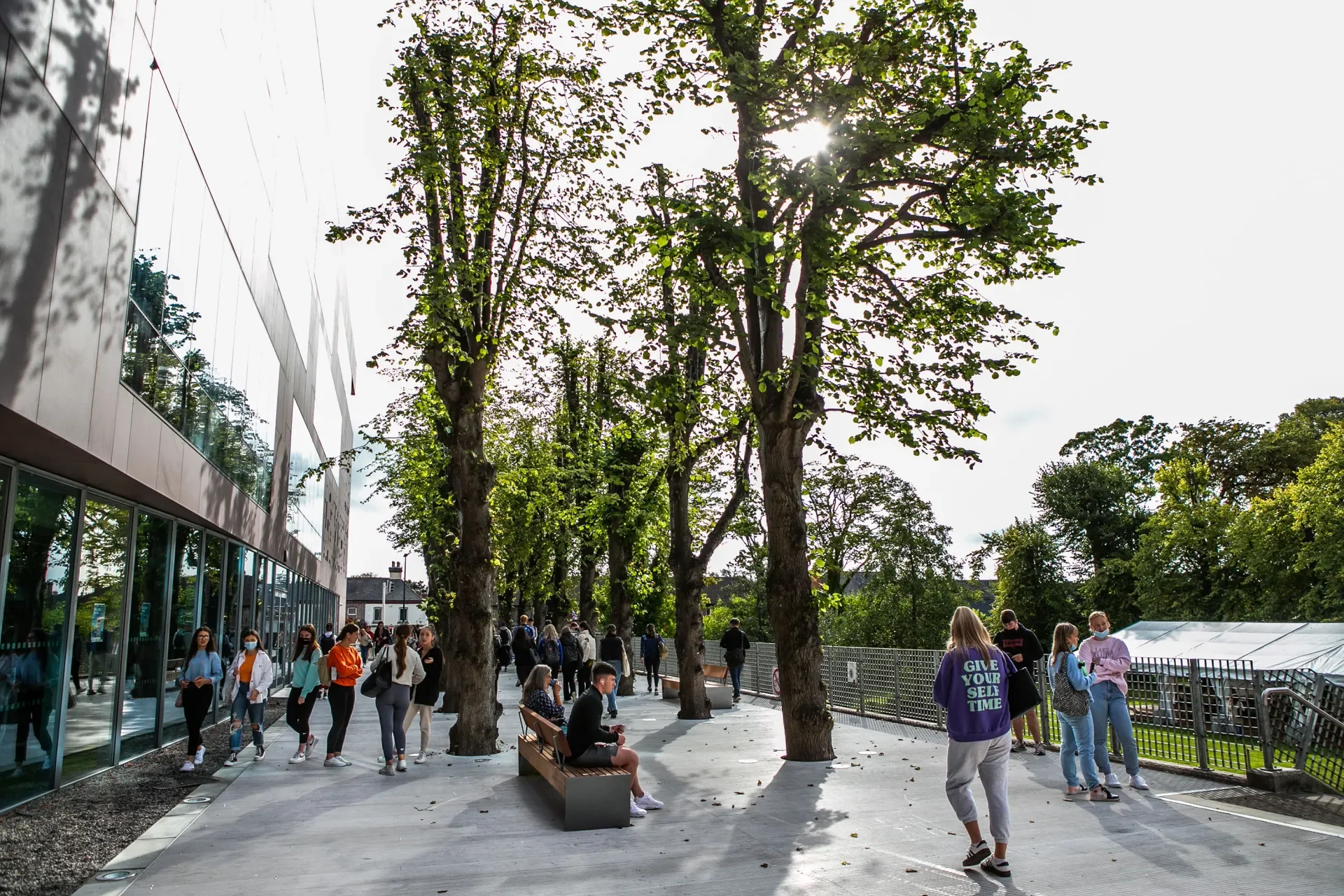
DCU St Patrick's Campus
FAQs
I am interested in studying Religious Education and would like to teach it at post primary level. What other subjects can I study along with Religious Education?
DCU Institute of Education offers three different combinations for those who wish to teach Religious Education and another subject at post-primary level. These courses are fully recognised by the Teaching Council of Ireland, and upon graduation, you can register as a Newly Qualified Teacher (NQT) and apply immediately for employment in post-primary schools:
- Bachelor of Religious Education and English (DC010)
- Bachelor of Religious Education and History (DC011)
- Bachelor of Religious Education and Music (DC012)*
*DC012: In addition to the general entry requirements for admission to the University, the following entry requirements apply: H4 in Music or equivalent (this requirement may be waived by the Head of Music). DC012 is a restricted entry course. Applicants must apply through CAO by 1 February. Late applications cannot be accepted. Applicants must take music aural and performance tests. For details, please visit: https://www.dcu.ie/registry/dc012-music-test-information.shtml
If you have any questions about Music on the Bachelor of Religious Education and Music programme (DC012), please contact Dr Seán Doherty: sean.doherty@dcu.ie directly.
What courses are offered by the DCU Institute of Education?
DCU Institute of Education brings together students of education and provides a rich menu of undergraduate courses across all sectors from early childhood, to primary and post-primary and further and higher education. We offer a range of taught and research postgraduate courses at doctoral, masters, diploma and certificate level and have a distinguished record in providing continuing professional development.
Is there Garda vetting for students who study DCU Institute of Education courses?
Garda vetting is required for all students who have unsupervised access to children and vulnerable adults as part of their studies at DCU. Applicants must successfully pass the Garda vetting process in order to complete the registration process.
What are the potential teaching pathways for primary, post-primary and further education and training offered by DCU?
Primary Teaching Pathways
Undergraduate*
Postgraduate**
- Professional Master of Education (Primary Teaching) - DC970
* Please ensure that you consult minimum entry requirements and CAO points for all undergraduate programmes
** Please ensure that you consult minimum entry requirements for all postgraduate programmes
Post-Primary Teaching Pathways
Undergraduate*
- Bachelor of Religious Education & English or History or Music - DC010 | DC011 | DC012
- Bachelor of Education in Gaeilge and French or German or Spanish - DC013
- Bachelor of Education in Technology, Engineering and Graphics - DC015
- Bachelor of Science (Hons) in Science Education - DC203
- Bachelor of Science (Hons) in Physical Education with Biology - DC205
- Bachelor of Science in Physical Education with Mathematics - DC206
Postgraduate**
- Professional Master of Education (Post-Primary Teaching) - DC905
* Please ensure that you consult minimum entry requirements and CAO points for all undergraduate programmes
** Please ensure that you consult minimum entry requirements for all postgraduate programmes
Further Education and Training Teaching Pathways
Undergraduate*
- BSc (Hons) in Education and Training (Further, Adult and Continuing Education) - DC235
* Please ensure that you consult minimum entry requirements and CAO points for all undergraduate programmes


